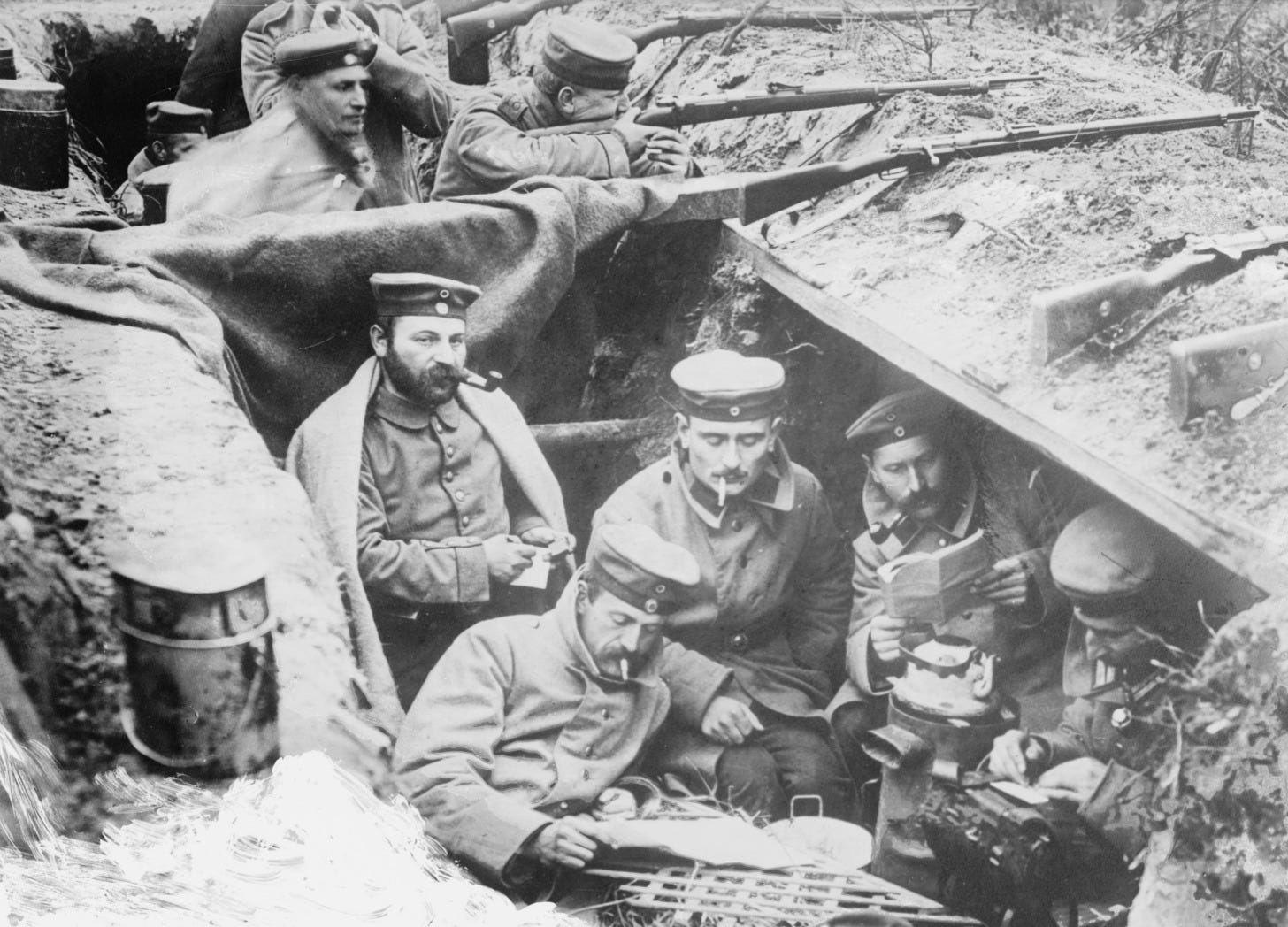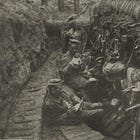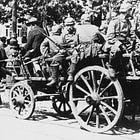Friendly Fire
Diary of a Stosstrupp Leader (Part 8)
This post continues the translation of the diary of a German soldier who fought in the First World War. Readers can find links to other posts in this series in the following guide.
Sunday, 29 October 1916
The eavesdropping service picked up talk of an impending Russian attack, to be conducted without artillery fire. So, from three thirty to four fifty-five in the morning I led a five man patrol to observe, at close hand, the Russian trenches. We found nothing of particular interest, save for several large bonfires behind the enemy position. When we returned, our own listening posts inadvertently fired upon us. None of us were hit.
In the afternoon, we cleaned out the trenches.
30 October 1916
We removed mud from the trenches. We replaced the poncho that had covered the entrance to our shelter with a proper door. Then, we packed up our things, for we would be relieved by the 8th Company of Infantry Regiment 97.
The relief took place towards six in the evening.
The soldiers who relieved us proved especially lively, as they had each been issued with half a bottle of red wine, a quarter liter of rum, and some tea mixed with rum. The relief took place according to the book. Naturally, the red wine and rum had been issued for consumption during the spell of trench duty, and not beforehand.
Such are the ways of soldiers.
31 October 1916
From three to six in the morning, we strengthened the defenses of the reserve position. In the afternoon, we picked up some beer from the field kitchen.
Starting at five, my squad guarded the camp in the Zarucka Woods. I drank some red wine with my company commander, Lieutenant Rudloff. My squad and I occupy good quarters.
1 November 1916
In the morning, we cleaned our rifles, attended pay call, and underwent an inspection of our iron rations, rifles, and overcoats. In the afternoon, we cleaned up the camp. In the evening, mail call.
I received a one-package from my sister, with chocolate, butter, and collar buttons. In my current situation, I found the latter to be especially ironic, for the thing that I needed most was buttons for my trousers.
At night, we guarded the camp. (We did the same on the next two nights.)
4 November 1916
Lieutenant Rudloff and I visited the position that our company was scheduled to occupy. We spent the hours from four to seven at the delousing station.
to be continued …
Source
The text comes from Alwin Lydding Meine Kriegstagbuch (My War Diary), unpublished manuscript, Bundesarchiv (German Federal Archive) N 382/1
For Further Reading







Friendly Fire, isn’t.
First hand accounts like this are truly powerful if you can fathom that the writer was a real person who penned the words on a real historical battlefield. To fully appreciate the account you must also do your very best to try to imagine how the writer must have felt and the perils and struggles he faced every day. As I often tell my son when teaching him about military history, "This was a true story. This really happened."